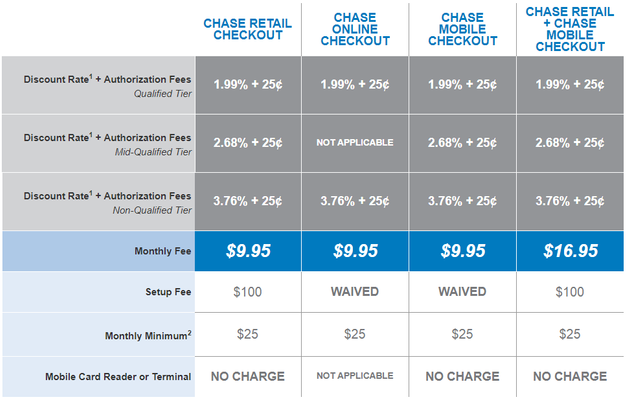Bitcoin is Already Much Faster than a Credit Card
In my limited time in the cryptocurrency space I have seen claims that Bitcoin and other cryptocurrencies must be as fast as or faster than credit card transactions today.
Well, what if I told you that this is already the case?
I am going to explain the credit card process at a high level so that we can understand when a merchant actually gets paid compared to when the card is swiped in their store or entered online.
When a customer swipes a credit card, what is called an 'authorization' occurs. This process creates a pending hold onto the customer's credit card validating the customer has available funds.
This authorization (while rendering the funds unavailable to be spent) remains on the customer's credit card until the merchant issues a later request to actually capture the funds.
Using my Chase credit card as an example, here is a screenshot of the current authorizations on my credit card:
You can see that I have a few transactions yesterday, one of which was at Chipotle for $9.81 cents.
Has Chipotle been paid $9.81 in their bank account?
No.
Notice the date 6/18. I went to Chipotle yesterday around 7PM and as of writing this article at 7PM on 6/19 they still have not been paid.
If I used Bitcoin, Litecoin, Bitcoin Cash or Dash would they have been paid already? Most certainly, perhaps in minutes.
This link does an excellent job of explaining the process in more detail:
https://www.cardfellow.com/blog/how-credit-card-processing-works/
Merchants are not paid until a process called 'settlement' occurs.
The settlement process is initialized from the merchant's integration with the credit card processor, sometimes the same night of the transaction. However, even if they send the request tonight they still will not get paid the same day or even the next (can take up to 3 business days).
Once the settlement request is made the processor's bank processes the authorized transactions then credits the merchant's account....after they take their cut of course.
Chase Paymentech (popular credit card processor):
Source: https://www.chasepaymentech.com/chasecheckout_pricing.html
You can see how these fees add up for each credit card transaction made, and that these fees are significantly higher than those on most cryptocurrency transactions.
I am not even getting into the following issues for merchants with credit cards today:
- Fraud checking/AVS (address verification, customer validation, potential arbitrary decline)
- Potential of chargebacks (customer disputes transaction, merchant pays more fees!)
- Possible settlement failure (in which case the customer receives free goods!)
Understand that each of these issues are non-existent with cryptocurrency payments today. No authorization, no fraud checks, only near-instant settlement confirmed by the blockchain.
Also, the other claim is that cryptos need to process 20,000 transactions per second as Visa is able to today. Visa is not able to process 20,000 transactions as no money is changing hands.
Visa has capability to process 20,000 authorizations per second. Even if crypto can process many times less that per second, crypto is actually processing transactions - meaning the money is moving from customer to merchant.
Let me know what you think and if you would like me to dive deeper into the credit card process!

